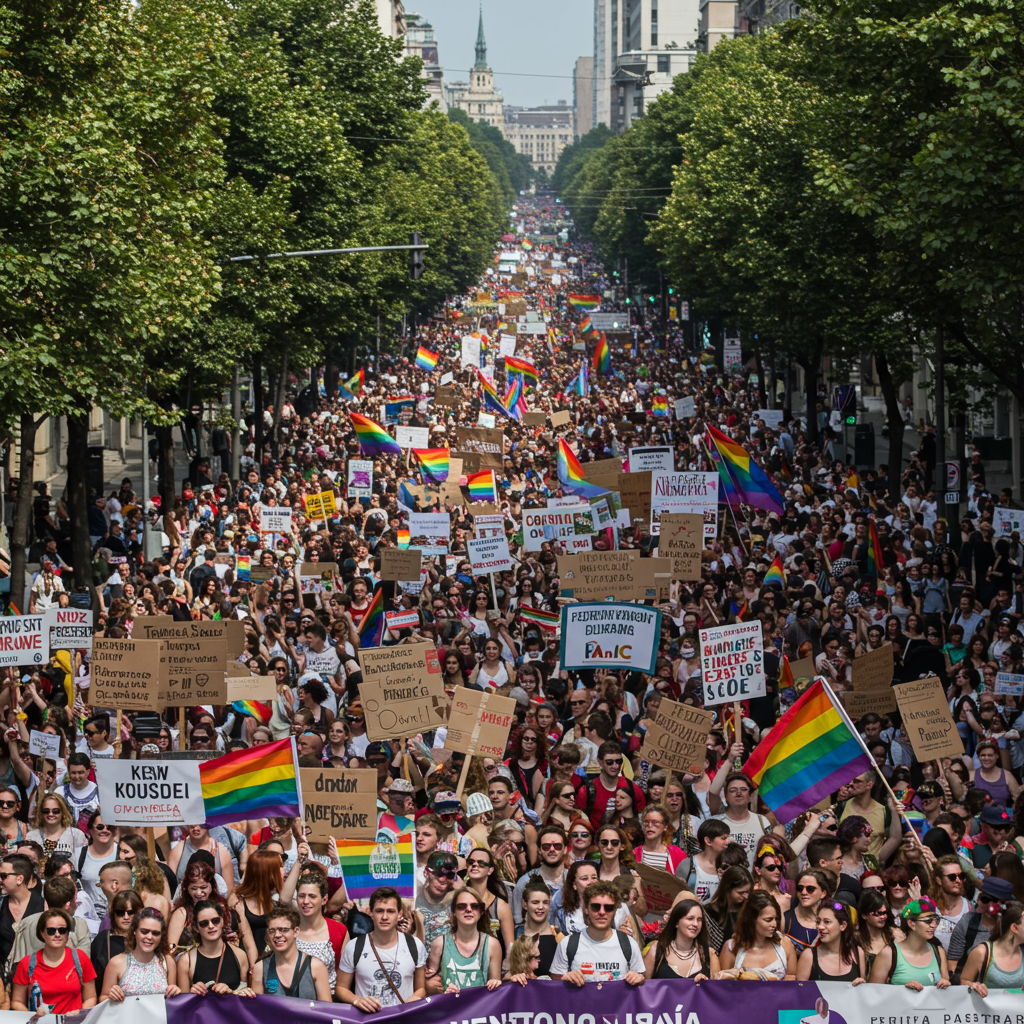PORT-OF-SPAIN, trinidad – Marking a pivotal moment in bilateral relations, Indian Prime minister Narendra Modi undertook his first official visit to the twin-island nation of Trinidad and tobago on July 3-4, 2025. During this significant two-day trip, Prime Minister Modi addressed the country’s parliament, delivering a powerful message of enhanced cooperation and promising continued growth in trade and investment between the two nations. The visit signals a “new dawn,” according to Trinidad and Tobago’s Prime Minister Kamla Persad-Bissessar, positioning India and Trinidad and Tobago as strategic partners poised for deeper collaboration across critical sectors.
The Indian leader’s visit was not merely ceremonial; it laid a concrete foundation for future economic engagement. Prime Minister Modi articulated a vision where the bonds forged by a shared history and a large Indian diaspora translate into tangible benefits through increased trade and targeted investments. He stressed the immense potential for collaboration, stating unequivocally that there were “no limits to our cooperation” with Trinidad and Tobago.
Forging a Strategic Partnership: Trade, Investment, and Global Ambitions
A central theme of Prime Minister Modi’s address was the mutual desire to elevate the standing of the Global South on the international stage. “It’s time for us to work together to give the Global South its rightful seat at the table,” Modi declared, echoing a sentiment increasingly prevalent in India’s foreign policy agenda. This shared perspective provides a strong political underpinning for closer economic ties. The focus on bolstering cooperation among developing nations highlights a joint commitment to addressing global challenges and advocating for their collective interests.
Beyond the rhetoric, specific areas for enhanced economic partnership were identified. Prime Minister Modi highlighted potential collaboration ranging from cutting-edge digital artificial intelligence tools to advancements in agriculture. He projected substantial growth in trade between the two countries, emphasizing that this expansion would be centered on “human development.” This focus suggests that economic gains are intended to translate into improved livelihoods and opportunities for citizens in both nations.
Trinidad and Tobago’s Prime Minister, Kamla Persad-Bissessar, confirmed and welcomed the investment commitments made by the Indian delegation. She specifically noted promised investments aimed at strengthening medical, energy, and technological infrastructure. These sectors represent key pillars for Trinidad and Tobago’s economic diversification and future growth, making Indian investment in these areas particularly impactful.
Key Sectors for Future Cooperation
The commitment to boost investment spans several vital sectors, reflecting the diverse needs and opportunities within Trinidad and Tobago.
Energy: As a significant energy producer, Trinidad and Tobago offers potential for collaboration with energy-hungry India. This could involve investment in exploration, production, or even downstream industries. India’s expertise in renewable energy could also present avenues for diversification.
Health: Investments in medical infrastructure could range from building new facilities to upgrading existing ones or facilitating training and technology transfer. This aligns with India’s strengths in pharmaceuticals and healthcare services.
Technology: The mention of digital AI tools signals an interest in cutting-edge technological cooperation. This could involve developing joint ventures, establishing tech centers, or implementing digital transformation projects across government and industry. Cybersecurity and data management are also potential areas for partnership.
Agriculture: Cooperation in agriculture could focus on improving yields, developing sustainable farming practices, technology adoption (like precision agriculture), and enhancing food security. India possesses significant expertise in agricultural research and technology.
- Security: While less detailed in the addresses, security cooperation could encompass areas like maritime security given T&T’s island status, cybersecurity, or capacity building in law enforcement.
- abcnews.go.com
- www.dailygazette.com
These specific sectors represent strategic choices designed to leverage the strengths of both economies and address pressing development needs in Trinidad and Tobago.
Deepening Historical and Cultural Connections
The relationship between India and Trinidad and Tobago is unique, built upon generations of shared history and cultural exchange. Over 35% of Trinidad and Tobago’s population of 1.4 million are descendants of indentured workers brought from India during the colonial era. This significant diaspora forms a powerful living bridge between the two countries.
Prime Minister Modi underscored these long-standing connections, describing them as a “powerful symbol” of fraternity and trust. He referenced the shared historical journey of both nations rising “from the shadows of colonial rule to write our own story,” asserting that this “legacy of shared heritage and mutual respect continues to guide our partnership.”
Empowering the Diaspora: The OCI Card Initiative
A tangible outcome benefiting the Indian diaspora in Trinidad and Tobago was announced during the visit. On Thursday, Prime Minister Modi declared that the sixth generation of citizens with Indian origin would now be eligible to receive Overseas Citizen of India (OCI) cards.
The OCI card provides a convenient long-term visa-free travel to India and grants various rights, such as the ability to live and work in India, similar to Non-Resident Indians (NRIs). Expanding eligibility to the sixth generation acknowledges the enduring ties of the diaspora and facilitates stronger connections with their ancestral homeland. This move is expected to foster increased cultural exchange, tourism, and potentially even business ties between the two countries.
Bilateral Trade and the Path Forward
Both leaders confirmed active steps are being taken to renew bilateral trade and investment agreements. Prime Minister Persad-Bissessar indicated that Trinidad and Tobago is specifically slated to expand its exports to India. While the original article doesn’t detail specific export products, T&T’s key exports typically include energy products, chemicals, and agricultural goods. Expanding market access to India, one of the world’s largest economies, could provide a significant boost to Trinidad and Tobago’s export sector and help diversify its economy.
Prime Minister Persad-Bissessar characterized the visit as “more than just diplomacy,” highlighting its transformative potential. “It marks a new dawn,” she stated, emphasizing the shift towards a more integrated and purposeful collaboration. The declaration that India and Trinidad and Tobago will now work as “strategic partners” elevates the relationship beyond traditional diplomatic ties to a more comprehensive alliance, potentially encompassing political coordination on global issues and deeper security cooperation alongside economic initiatives.
Reception and Future Outlook
Prime Minister Modi’s visit was met with a warm welcome from many segments of Trinidad and Tobago’s population, particularly within the country’s Hindu community, which comprises about 18% of the total population. However, the visit also drew criticism from some members of the Muslim community, which makes up around 5%. This mixed reception underscores the diverse social and political landscape within Trinidad and Tobago and reflects varying perspectives on India’s current political leadership.
Despite the varied reception, the overarching message of the visit was one of mutual commitment to strengthening ties. The promises of continued trade and investment, coupled with the declaration of a strategic partnership and concrete steps like the OCI card expansion, suggest a trajectory of deepening engagement. The shared history, coupled with forward-looking goals in technology, energy, and global diplomacy, positions India and Trinidad and Tobago for a future of enhanced cooperation that could yield significant benefits for both nations and contribute to the broader development goals of the Global South.
Frequently Asked Questions
What key promises did Indian PM Modi make during his 2025 visit to Trinidad and Tobago?
During his visit on July 3-4, 2025, Indian Prime Minister Narendra Modi promised continued trade and investment in Trinidad and Tobago. He specifically highlighted potential cooperation in developing digital artificial intelligence tools and advancing agriculture. Additionally, he announced investment commitments in medical, energy, and technological infrastructure, aiming for trade growth centered on human development and elevating the position of the Global South.
How will the new strategic partnership impact India-Trinidad and Tobago relations?
The declaration of India and Trinidad and Tobago as “strategic partners” by both Prime Ministers marks a significant upgrade in their relationship. This means collaboration is expected to go beyond traditional diplomacy, potentially including deeper economic integration through renewed trade and investment agreements, increased cooperation in key sectors like energy, technology, and health, and possibly coordinated efforts on global political and security issues, reflecting a shared vision for the Global South.
Which sectors in Trinidad and Tobago are expected to benefit most from India’s promised investment?
Based on announcements made during the visit, key sectors in Trinidad and Tobago poised to benefit from India’s promised investment include energy, health, and technology. Prime Minister Modi also mentioned potential collaboration in digital AI tools and agriculture. These investments are intended to boost critical infrastructure and foster economic growth, aligning with Trinidad and Tobago’s development priorities.
Conclusion
Indian Prime Minister Narendra Modi’s 2025 visit to Trinidad and Tobago served as a clear affirmation of deepening ties and mutual aspirations. From addressing parliament and pledging substantial investment across vital sectors like energy, health, and technology, to acknowledging the profound historical bonds and expanding diaspora benefits through the OCI card program, the trip solidified the foundation for a robust future partnership. The commitment by both nations to act as strategic partners, coupled with a shared vision for the Global South, sets a course for increased trade, collaboration, and mutual development. While navigating a diverse social landscape, the visit underscored a powerful narrative of shared heritage evolving into a dynamic alliance focused on economic prosperity and global influence.


